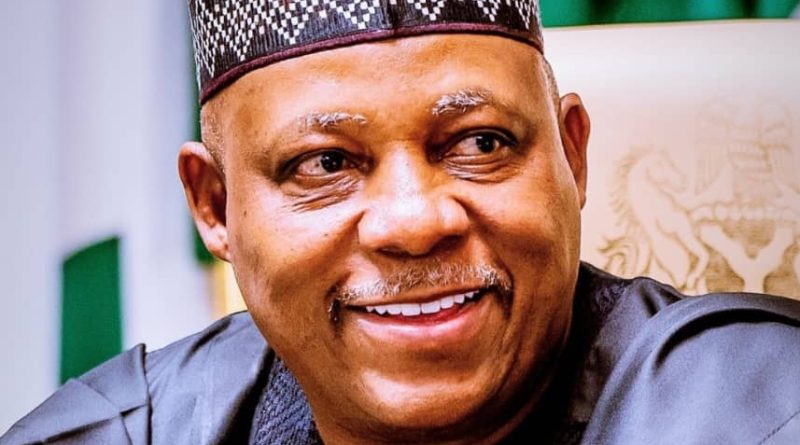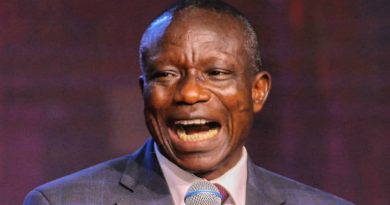Shettima Calls For Collaboration Of All Stakeholders Towards Achieving Sustainable Development Goals
By Bukar BOLORI
The Vice President, Senator Kashim Shettima, has called on African leaders, stakeholders and the private sector to come together and create an inclusive approach to achieving Sustainable Development Goals (SDGs) and deliver lasting solutions to climate change in the continent.
He made the call at the 2nd Edition of the Africa Climate Forum (ACF) in Abuja on Monday.
Represented by the Special Advisor to the President on National Economic Council on Climate Change, Rukayat El-Rufai, the Vice President noted that African countries have continued to suffer from the effects of climate change and it has become necessary for stakeholders to dialogue towards defining remediation, mitigation and adaptation strategies, as well as low-emission pathways.
The Vice President while highlighting Nigeria’s proactive stance, referenced the country’s Climate Change Act of 2021, which aims for low greenhouse gas emissions and sustainable growth.
He noted the targets for net-zero emissions by 2060 and emphasized ongoing efforts to establish a robust sustainable carbon market projected at $2.5 billion.
He, however, urged stakeholders to recognize climate change not as a distant concern but as an immediate threat requiring urgent and coordinated responses.
The Vice President also lauded the forum’s organizers for their commitment to fostering tangible solutions through initiatives like the Deal Room, which aims to facilitate financing for climate projects.
In a welcome Address, the converner and Director General, Global Centre for Law, Business and Economy, Professor George Nwangwu said Africa Climate financing is necessary not only to combat climate change but also for fostering sustainable development.
Speaking on the theme: “Africa’s Climate Future: Pathways from Dependence to Leadership”, he said it depicted the moment where Africa can transform from being a continent that bears the burden of climate impacts to one that leads in climate solutions and innovation.
He added that empowering sub-national entities to lead the way would be crucial in achieving meaningful and lasting progress toward climate goals.
Prof. George Nwangwu, who is also the convener of the forum, decried that only 0.2% of the US$400 billion earmarked for the Fund for Responding to Loss and Damage (FRLD) has been committed, raising concerns about Africa’s climate resilience.
He said: “The fund for responding to loss and damage was operationalized at COP28, and Ibrahim Cheikh Diong has been appointed as its Executive Director, effective November 1, 2024,” noting that despite this development, Africa still faces formidable challenges in securing adequate financing to address the irreversible effects of climate change.
Nwangwu said, with commitments currently exceeding US$ 700 million, the funding gap remains critical.
He said to address the loss and damage caused by severe weather incidents globally, an annual baseline of US$400 billion is necessary.
He, however, noted that the forum will spur actions, forge partnerships, share knowledge, and commit to concrete steps that will propel Africa forward toward a future where we are not just dependent on external aid or solutions but are leaders, innovators, and drivers of global climate change strategies.
Nwangwu said: “Nevertheless, challenges still persist. At just over 700 million U.S. dollars in foreign direct investments commitments, which is merely 0.2% of the total amount needed to address the irreversible effects of climate change and global warming. Africa still needs a lot of financing to move forward.
“Climate and development experts have recommended a baseline of US$400 billion annually to cater for the loss and damage caused by severe weather incidents globally. Again, the absence of mandatory commitments raises doubts about Africa Climate”.




